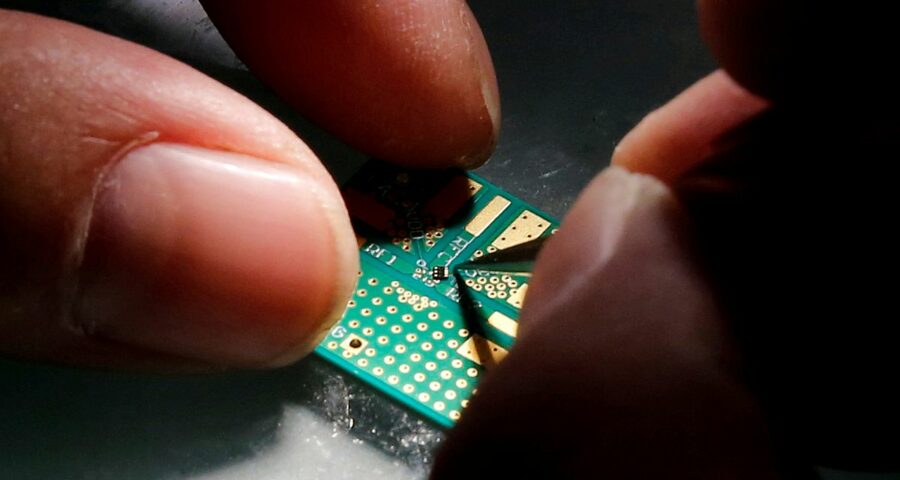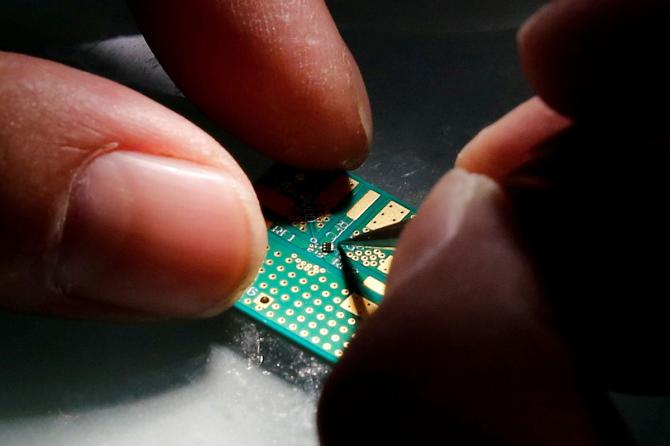Semiconductors are used in myriad ways, including in fuel-pressure sensors, digital speedometers, and navigation displays.
The Tata group is looking to make a foray into semiconductor (also known as chips) manufacturing and it has set up a business to seize the opportunity, Chairman N Chandrasekaran said on Monday.
“At the Tata group, we have already pivoted into a number of new businesses like electronics manufacturing, 5G network equipment as well as semiconductors, in all probability,” he said while speaking at the annual general meeting of the IMC Chamber of Commerce and Industry.
Chandrasekaran said global supply chains, currently heavily dependent on China, would see a big change in a post-pandemic world with businesses shifting their reliance to other countries.
“On rebalancing supply chains, India can benefit from global shifts. The Tata group has already set up a business to seize the promise of high-tech manufacturing for electronics.
“A domestic electronics industry could unlock $1 trillion in GDP and create millions of jobs,” he said.
The Tata group chairman’s remarks come at a time when automobile makers across the world are facing a severe shortage of semiconductors, hitting their businesses.
Semiconductors are used in myriad ways, including in fuel-pressure sensors, digital speedometers, and navigation displays.
Semiconductor manufacturing requires high investments and India does not have any such facility yet.
The Vedanta group, which recently emerged as the highest bidder for Videocon, is also looking at the semiconductor industry for a possible foray.
A foray into the semiconductor segment will help the Tata group supply these key components to Tata Motors and Tata Power, apart from other companies across the world.
Tata Motors recently announced that its subsidiary Jaguar Land Rover would make a huge loss in the coming quarter due to lack of semiconductors in the UK.
JLR said last month that the semiconductor shortage might worsen and its sales in the July-September quarter were likely to be almost half of what it had planned.
“Based on recent inputs from suppliers, we now expect chip supply shortages in the second quarter ending September 30, 2021, to be greater than in the first quarter, potentially resulting in wholesale volumes about 50 per cent lower than planned, although we are continuing to work to mitigate this,” JLR had said.
Since the announcement that Tata Motors and JLR will fail to meet its sales targets, shares of Tata Motors have shown a downtrend.
Chandrasekaran also said when it came to environmental sustainability, businesses needed to have “time-bound goals, not vague and distant targets”.
It was critical to invest in research and development in future growth sectors such as renewable energy, he added.
On digital initiatives, Chandra said Tata Digital was building multiple platforms, including a consumer offering covering retail, travel, financial services, health and education.
Huge market potential of $1 trillion
Tata Motors arm JLR making huge losses due to chip shortage
Shift in supply chains from China to other markets
India to benefit if global companies source components from here
Photograph: Kim Kyung-Hoon/Reuters
Source: Read Full Article


